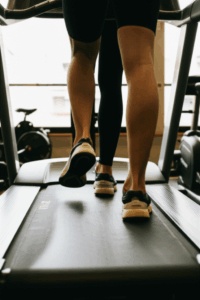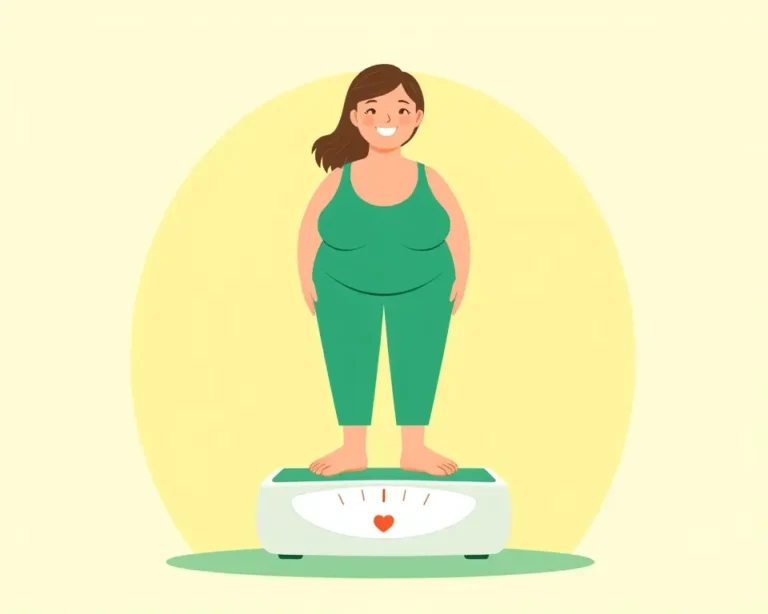Many people equate strict diets and rigorous fitness routines with success and discipline. However, sometimes, the pursuit of leanness can become detrimental to overall health and well-being. This is the story of how recognizing being too lean, consciously gaining weight through balanced nutrition and strength training, and shifting the focus from restriction to nourishment led to improved fitness and a happier, healthier life.
The Dangers of Being “Too Lean”
While the fitness industry often celebrates low body fat percentages, being excessively lean can have several negative consequences. It’s crucial to understand the potential health risks associated with being underweight or striving for an unnaturally low body fat level.
- Hormonal Imbalance: Excessively low body fat can disrupt hormone production, especially in women, leading to irregular or absent menstrual periods (amenorrhea), reduced fertility, and weakened bones. Thyroid hormone, growth hormone, and IGF-1 levels can also be significantly reduced.
- Increased Risk of Injury: Being too lean can increase the risk of soft tissue injuries, stress fractures, and prolonged healing times due to hormonal disruptions and decreased bone density.
- Weakened Immunity: Insufficient body fat can compromise the immune system, making individuals more susceptible to illness and infections.
- Heart Problems: In extreme cases, very low body fat percentages can lead to dangerously low heart rates (bradycardia), potentially increasing the risk of cardiac arrhythmias and sudden cardiac death.
- Mental Health Issues: Being underweight can negatively impact mental health, leading to depression, anxiety, irritability, and difficulty concentrating. An undernourished brain struggles to function properly, leading to rigid thinking and difficulty making decisions.
- Osteoporosis: Being underweight increases the risk of osteoporosis, where the bones become brittle and more prone to breaking.
- Anemia: Underweight individuals are more likely to have low blood counts (anemia), causing dizziness, headaches, and fatigue.
- Fatigue: Not getting enough calories to maintain a healthy weight can lead to persistent fatigue and low energy levels.
Recognizing the Signs of Being Too Lean
It’s essential to be aware of the signs that indicate you might be too lean. These signs can vary from person to person, but some common indicators include:
- Persistent fatigue and low energy levels: Feeling tired all the time, even after adequate rest.
- Increased susceptibility to illness: Getting sick more frequently or having difficulty recovering from common illnesses.
- Irregular or absent menstrual periods (in women): A disruption in the menstrual cycle can be a significant indicator of hormonal imbalance due to low body fat.
- Hair loss or dry skin: Insufficient nutrient intake can manifest in physical symptoms like thinning hair and dry skin.
- Mood changes and irritability: Feeling more irritable, anxious, or depressed than usual.
- Difficulty concentrating: Experiencing brain fog or struggling to focus on tasks.
- Constant hunger: Feeling hungry despite eating regularly.
- Decreased libido: A reduction in sexual desire can be a sign of hormonal imbalance.
- Low resting heart rate: A resting heart rate consistently below 60 beats per minute could be a cause for concern.
- Weakness: Noticeable decline in strength during workouts.
Shifting the Mindset: From Restriction to Nourishment
The first step toward a healthier approach is to shift the mindset from restriction to nourishment. Instead of focusing on limiting calorie intake and maximizing exercise, prioritize providing the body with the nutrients it needs to thrive. Laura Iu, RD, CDN, CNSC, RYT, owner of Laura Iu Nutrition, says that “Being malnourished or undernourished can severely impact your immune function, cognitive function and overall quality of life”.
- Focus on nutrient-dense foods: Choose whole, minimally processed foods that are packed with vitamins, minerals, and antioxidants.
- Eat regular meals and snacks: Aim for 5-6 smaller meals throughout the day to maintain consistent energy levels and prevent excessive hunger.
- Don’t eliminate entire food groups: Avoid restrictive diets that cut out essential nutrients, which can disrupt endocrine function.
- Listen to your body’s hunger cues: Eat when you’re hungry and stop when you’re full.
Building a Balanced Diet for Healthy Weight Gain
Gaining weight healthily involves increasing calorie intake while ensuring a balanced intake of macronutrients (protein, carbohydrates, and fats) and micronutrients (vitamins and minerals). It’s not about consuming empty calories from junk food; it’s about fueling your body with nutritious foods that support muscle growth and overall health.
- Increase Caloric Intake: Create a calorie surplus by eating more calories than your body needs. Start by adding 300-500 calories per day to your maintenance level and adjust as needed.
- Prioritize Protein: Consume adequate protein to repair your body and build your muscles. High protein foods include meats, fish, eggs, dairy products, legumes, and nuts.
- Include Healthy Fats: Incorporate healthy fats from sources like olive oil, avocados, nuts, and seeds.
- Choose Complex Carbohydrates: Opt for complex carbohydrates like oats, quinoa, fruits, sweet potatoes, and buckwheat.
- Eat Energy-Dense Foods: Include foods that contain many calories relative to their weight, such as nuts, dried fruit, high-fat dairy, and healthy oils.
- Consider Supplements: Protein shakes and meal replacement drinks can be convenient ways to increase calorie and nutrient intake, especially for those with smaller appetites.
Exercise Strategies for Healthy Weight Gain and Increased Fitness
While gaining weight often focuses on dietary changes, exercise plays a crucial role in ensuring that the weight gain is primarily muscle mass rather than fat. Strength training, in particular, is essential for building muscle and improving overall fitness.
- Resistance Training: Engage in resistance training (strength training) at least twice a week, targeting all major muscle groups.
- Compound Exercises: Focus on compound exercises that work multiple muscle groups simultaneously, such as squats, deadlifts, bench presses, and pull-ups.
- Progressive Overload: Gradually increase the weight you lift or the number of reps and sets to continue stimulating muscle growth.
- Don’t Neglect Cardiovascular Exercise: Maintain cardiovascular exercise for a healthy heart, lungs, and brain. Limit cardio to around 20 minutes three times a week.
The Mental and Emotional Benefits of a Healthier Weight
The benefits of gaining weight healthily extend beyond physical improvements. Shifting the focus from restriction to nourishment can have a profound impact on mental and emotional well-being.
- Improved Mood: Adequate nutrition supports brain function and can alleviate symptoms of depression and anxiety.
- Increased Energy Levels: Fueling the body with enough calories and nutrients leads to increased energy and reduced fatigue.
- Better Body Image: Gaining weight in a healthy way can improve body image and self-confidence.
- Reduced Obsessive Thoughts: A balanced diet can reduce preoccupation with food and eating, allowing for more focus on other aspects of life.
- Increased Social Engagement: Improved mood and energy levels can lead to greater social interaction and a more fulfilling life.
Consulting Professionals
If you’re considering gaining weight, it’s always a good idea to consult with healthcare professionals, such as a registered dietitian or a physician. They can help you create a personalized plan based on your individual needs and health status. It is best to see your health care provider if you lost weight unexpectedly. Your provider or a dietitian can help you gain weight in a healthy way.
- Registered Dietitian: A registered dietitian can provide guidance on creating a balanced and sustainable eating plan to support healthy weight gain.
- Physician: A physician can help identify any underlying medical conditions that may be contributing to being underweight and recommend appropriate treatment.
Embracing a Healthier, Happier You
Gaining weight after recognizing being too lean can be a transformative journey. By shifting the focus from restriction to nourishment, embracing balanced nutrition, and incorporating strength training into a fitness routine, it is possible to achieve not only a healthier body but also a happier and more fulfilling life. It’s about finding a balance that supports both physical and mental well-being, and recognizing that true fitness is about more than just leanness.







